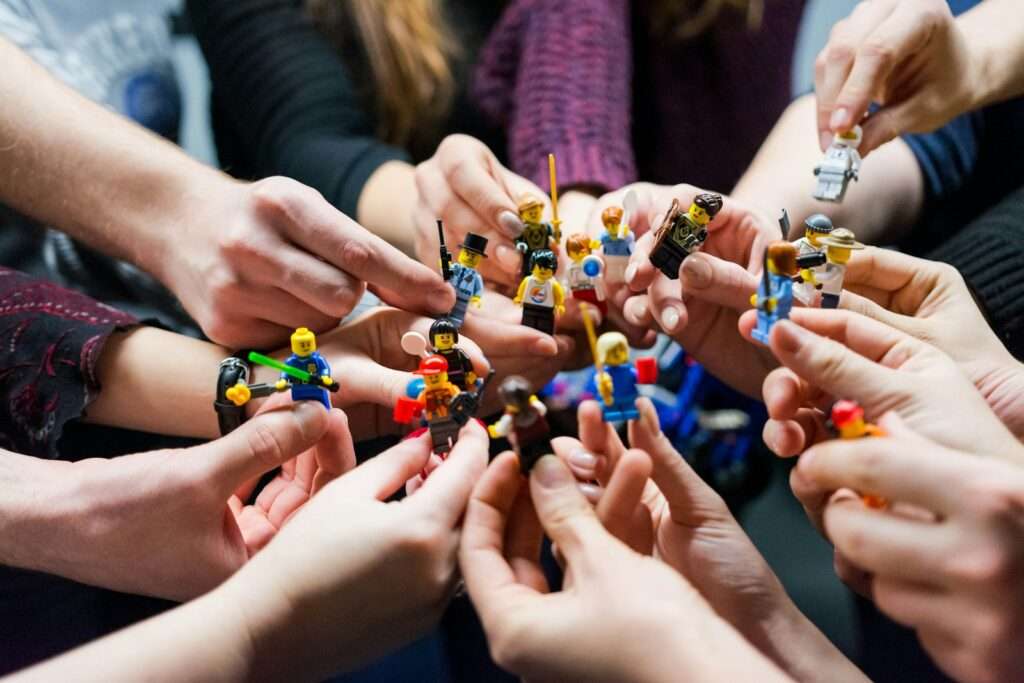In any workplace, strong relationships among team members are essential for success. When employees work well together, they are more productive, more engaged, and more likely to stay with the company long-term. In this article, we’ll explore the importance of team building in the workplace and how it can create stronger relationships among employees.
Table of Contents
How Important Is Team Building? Creating Stronger Workplace Relationships
Building Trust and Communication
One of the key benefits of team building is the ability to build trust and improve communication among team members. Here’s how:
- Encourages open and honest communication, leading to better collaboration and problem-solving.
- Fosters a sense of mutual respect among team members, leading to more trust and teamwork.
- Builds stronger relationships among team members, leading to a more positive work environment.
Improving Employee Morale and Engagement
Team building can also improve employee morale and engagement, which are crucial factors for any successful workplace. Here’s how:
- Provides employees with opportunities to connect with each other on a personal level, leading to more positive and supportive relationships.
- Encourages employee participation and engagement, leading to a more active and involved workforce.
- Improves employee satisfaction, leading to higher levels of motivation and productivity.
Enhancing Creativity and Innovation

Effective team building can also enhance creativity and innovation within the workplace. Here’s how:
- Encourages employees to think outside the box and come up with new and innovative ideas.
- Fosters a culture of creativity and experimentation, leading to more innovative solutions to workplace challenges.
- Provides employees with the opportunity to share their ideas and collaborate with others, leading to more diverse and effective solutions.
The Importance of Ongoing Team Building
While one-time team building events can be beneficial, ongoing team building is essential for maintaining strong workplace relationships. Here’s why:

- Builds on the relationships and trust established during initial team building events, leading to even stronger connections among team members.
- Helps to reinforce company values and goals, leading to a more cohesive and united workforce.
- Provides opportunities for continuous learning and growth, leading to ongoing improvements in employee performance and productivity.
In conclusion, team building is a crucial aspect of creating a successful workplace. By building trust and communication, improving employee morale and engagement, and enhancing creativity and innovation, team building can lead to stronger relationships among employees and a more positive and productive work environment. So, whether you’re planning a team building event or looking to incorporate ongoing team building activities, make sure to prioritize building strong workplace relationships.
10 Facts about Team Building

- Increased Productivity:
- Team building activities contribute to higher productivity as they help team members understand each other’s strengths and weaknesses.
- Improved Communication:
- Team building fosters better communication skills among team members, leading to more effective collaboration on tasks and projects.
- Enhanced Creativity:
- Collaborative activities encourage the sharing of ideas and perspectives, sparking creativity and innovation within the team.
- Boosted Morale:
- Engaging in team-building activities helps create a positive work environment, leading to increased morale and job satisfaction among team members.
- Conflict Resolution Skills:
- Team-building exercises often involve problem-solving scenarios, which help team members develop effective conflict resolution skills.
- Established Trust:
- Building trust is crucial for a successful team. Team-building activities create opportunities for team members to develop trust in each other’s abilities and intentions.
- Identifying Strengths and Weaknesses:
- Team-building exercises provide insights into individual strengths and weaknesses, allowing teams to allocate tasks more effectively based on each member’s capabilities.
- Improved Collaboration:
- Team building fosters a sense of collaboration and encourages team members to work together towards common goals, leading to better overall team performance.
- Enhanced Problem-Solving:
- Team-building activities often simulate real-world problem-solving scenarios, helping teams develop critical thinking skills and strategies to tackle challenges.
- Better Team Dynamics:
- Team building helps create strong bonds among team members, improving overall team dynamics and making it easier for the team to adapt to changes and overcome obstacles together.
Find out more about our experiences.
You may also want to check out our gallery for past events.




















